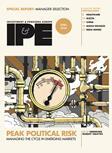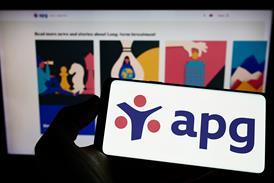A report published by KPMG shows that 2014 was a volatile year for pension schemes, with long-dated interest rates falling sharply and feeding through into an increase in the value of pension liabilities.
The KPMG study looked at 270 companies reporting variously under International Financial Reporting Standards, UK GAAP and US GAAP.
The report’s author, Katy Edwards, told IPE: “Persistent low interest rates have meant corporate bond yields were at historic lows at year-end.
“This was generally bad news for pension schemes – despite equity market rallies and strong fixed income asset performance over the year.”
Edwards added that this low real-yield environment served to pushed up year-end pension scheme liabilities by as much as a 10% in Q4 2014 alone.
“Pension disclosures are likely to continue to attract scrutiny from shareholders and analysts as the pensions exposure increases relative to the overall balance sheet,” she warned.
Naz Peralta, a director in KPMG’s London office, added: “Accounting deficits among FTSE 100 companies have generally deteriorated, but many schemes have hedging strategies in place on the asset side.”
This means, allowing for deficit contributions, many corporates are showing only modestly worse positions, he said.
Around the major pensions-accounting assumptions, the KPMG number-crunchers reported a continuation of a trend evident last year, with companies clustering ever more closely around the median in many cases.
For example, some 76% of companies used an inflation assumption within 0.1% of the median, while 76% of companies were within 0.1% of the median discount rate assumption.
In terms of the hard numbers, the median discount rate assumption has fallen from 4.5% last year to 3.6% this year.
KPMG said the dramatic reduction in bond yields led many sponsors to review their discount rate assumption with a view to mitigating some of the impact of falling yields on the balance sheet.
Changes to IAS 19 in place since 2013 mean companies should provide a narrative disclosure around key assumptions such as the discount rate.
In line with global economic picture, median RPI assumptions have also fallen from 3.4% to 3.1%.
Mortality assumptions have remained broadly unchanged over 2013, with a current pensioner aged 65 expected to survive a further 22.6 years on average.
A future pensioner currently aged 45 is expected to live for a further 24.2 years from the age of 65.
The current low-inflation environment has also put downward pressure on both pension and salary increases.
The most common pension increase reported by the KPMG study is inflation capped at 5% per annum, while the median salary increase remains at 0.50% above RPI inflation.
Looking ahead, Peralta said the challenging economic and investment landscape added up to tough negotiations with trustees for those schemes about to embark on a valuation review.
“I would say the primary concern for public companies against this backdrop of low yields is not so much the accounting but rather the negotiation of triennial funding arrangements with trustees,” he said.
“Although assets and liabilities might be tracking each other, the scheme may have grown relative to the size of the balance sheet, or the sponsor may be in a sector that is under pressure in the current economic environment.
“This may put pressure on the sponsor covenant and cash contributions, though sponsors will increasingly look to non-cash solutions such as additional security to provide comfort to trustees.”
Looking forward, the KPMG experts believe the IAS 19 guidance on the asset ceiling and surplus recognition, IFRIC 14, will continue to weigh on preparers working under international standards.
Peralta said: “To the extent that corporates have IFRIC 14 restrictions, which may be 10-20% of reporters, tougher funding negotiations may lead to greater balance sheet restrictions.
“If a sponsor commits more cash on a present-value basis to the trustees than they did during their last funding round, it might be that they have to provide for this on the balance sheet because of IFRIC 14.”
He added that preparers should be mindful of possible changes to IFRIC 14, with the IASB poised to issue an exposure draft detailing changes to the guidance.
Those changes address a defined benefit plan sponsor’s ability to access a refund of contributions where the plan structure features an independent trustee body.
“If the IFRIC 14 changes come in, inevitably this issue will impact some companies adversely,” Peralta said.
“Our recommendation is for scheme sponsors to think about the potential impact.”
In addition, KPMG also note that DB sponsors in the UK could also be affected by the way so-called pensions freedoms could feed through into their liability assessment.
Finally, sponsors in the EU could also be affected by the recent European court PPG decision dealing with an employer’s entitlement to deduct VAT in respect of pension fund management services.












No comments yet